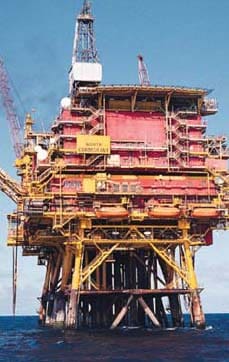NORWAY
The sizes of our stakes in global companies have increased, and so we will gain from being more active. Knut Kjaer, Norwegian central bank

Grow too big, and theres just no way you can huddle away from an ill wind.Thats the bitter experience of the Norwegian Government Petroleum Fund, which last month unveiled a 4.7% slump in the value of its investments over 2002. Knut Kjaer, the executive of Norways central bank who oversees the fund, says it was hit by the storm that blew through world equity markets as well as the strength of the krone.
Set up in 1998 to invest state revenues from the countrys oil and gas industry, the fund places all of its money abroad. And thats some money. Even after recent travails, its worth NKr609 billion ($81.7 billion). The fund is expected to top $250 billion by 2010, around the value of Norways GDP.
Thats made it a top target for hometown politicians, who argue that fund managers should be spending cash in Norway rather than gambling money abroad. But the Petroleum Fund does more than provide a nest egg for future pensions; it also acts as a safety valve, siphoning off cashflows that would unbalance the domestic economy.
The size of the fund set to be the worlds largestlimits its flexibility, as does the strict mandate under which it operates from the central bank. Still, Knut Kjaer has some tricks up his sleeve. The 60% of the fund thats in bonds returned 9.9% last year. And Kjaer is set to take a more active role in the companies in which it holds shares. Over the past two years the size of our internally managed portfolio has increased, and so also our stakes in global companies, he says, making it more certain in a cost benefit context that we will gain from being more active.
Benjamin Beasley-Murray



